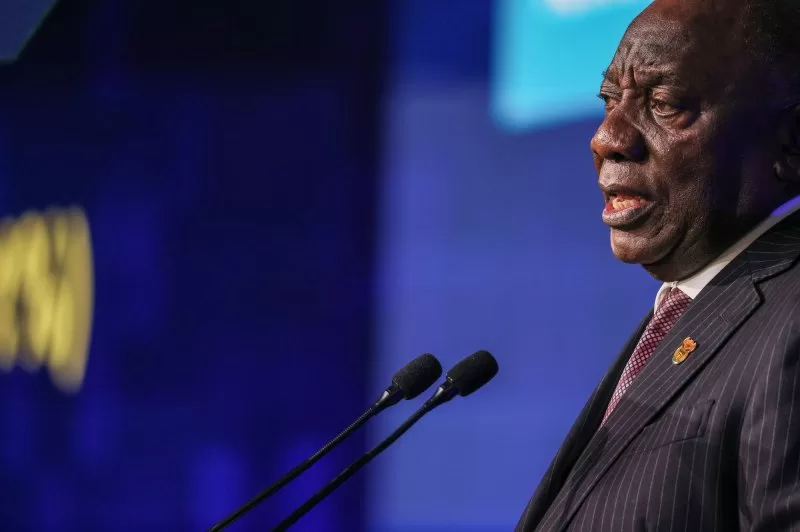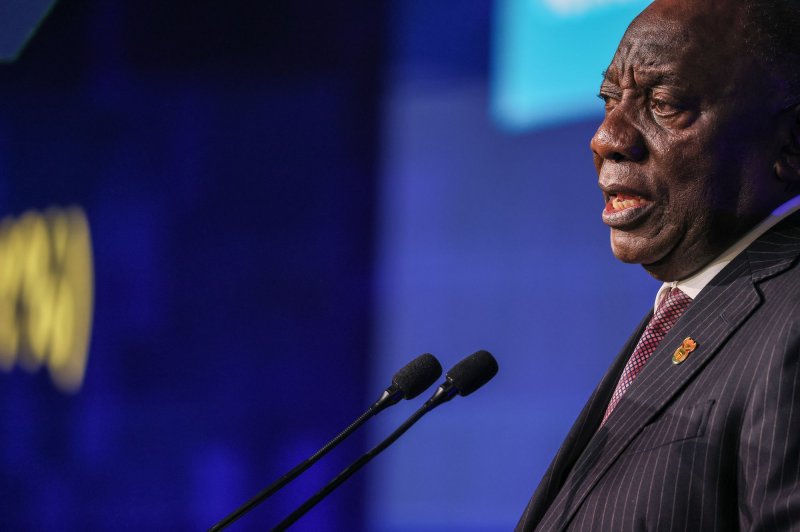South African President Cyril Ramaphosa unveiled a new government of national unity made up of 11 parties Sunday after his ruling African National Congress lost its parliamentary majority in May’s general elections for the first time in the post-apartheid era. File Photo by Jemal Countess/UPI |
License PhotoJuly 1 (UPI) — South African President Cyril Ramaphosa announced a new government of national unity after his ruling African National Congress lost its parliamentary majority in the May general election for the first time in the post-apartheid era.
The coalition bringing together the ANC with the main Democratic Alliance opposition and nine other parties to work jointly across government and parliament was “unprecedented in the history of our democracy,” Ramaphosa said in a televised address late Sunday.
He said that once ministers and deputy ministers were sworn in over the coming days, the priorities of the new government would be to deliver “rapid, inclusive and sustainable economic growth,” pushing through power, telecoms, transport and business reforms, and to create a more equal society.
“This is the first time in South Africa’s history that such a broad range of parties, from across the political spectrum, will constitute a government,” said Rampahosa, who held onto the presidency after the National Assembly backed his bid for a second term June 14.
“In mandating us to form a government that serves all, the South African people have a rightful expectation that the seventh administration begins its work as soon as possible.”
Failure to deliver on the promise of improving the lives of the Black majority population with almost a third of people unemployed, huge income inequality, soaring crime, corruption scandals and regular power outages is being blamed for voters calling time on the ANC in the May 29 election.
The deal, ending almost five weeks of bitter wrangling over the details of power-sharing and the allocation of cabinet appointments, sees the ANC emerge with 20 posts to the pro-business Democratic Alliance’s six with the remaining six going to the minor parties in the coalition.
The ANC retains the key defense, finance, foreign affairs, land reform, and mining briefs while the DA gets home affairs, agriculture, public infrastructure, and telecoms and digital.
“The message delivered from the South African electorate has been heard loud and clear. No political party achieved an outright majority, and citizens want politicians to cast aside their differences and work together for the benefit of the people,” DA leader John Steenhuisen said in a news release.
He said the party was “proud to rise to the challenge, taking its place in national government for the very first time, promising “governance excellence, zero tolerance for corruption, and pragmatic policymaking.”
“The mission to create an open, opportunity society for all South Africans now becomes our sole focus as we work the levers of the highest level of government in our country.”
However, policy differences between the ANC and the DA, which has been called a “White” party, principally over the ANC’s program to empower Blacks economically and healthcare plans could yet derail the project.
The ANC lost 71 seats in the 400-seat National Assembly in the May election, along with its outright majority leaving it with 159, the DA upped its share of seats from 84 to 87 while the uMkhonto weSizwe Party of former president and ANC leader Jacob Zuma picked up 58.
The uMkhonto weSizwe Party, which is seeking to get the result thrown out in a court challenge alleging election rigging, said last week it would back a coalition of opposition parties with Zuma condemning the ANC-led unity government as a “White-led unholy alliance.”

